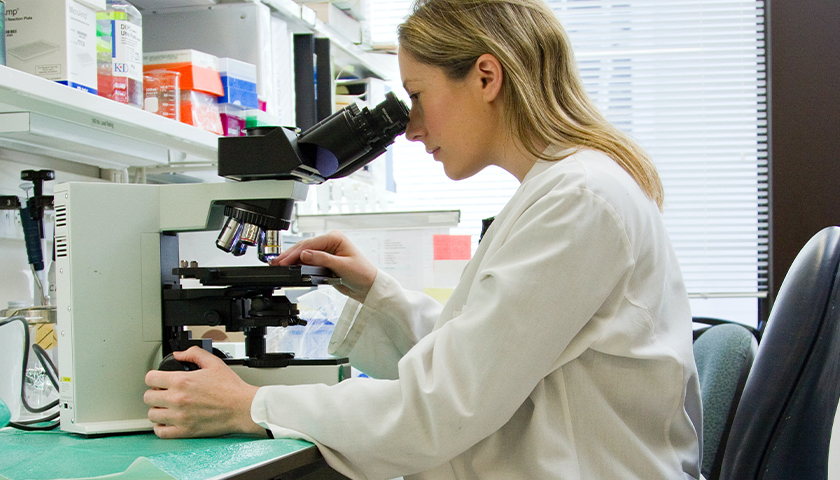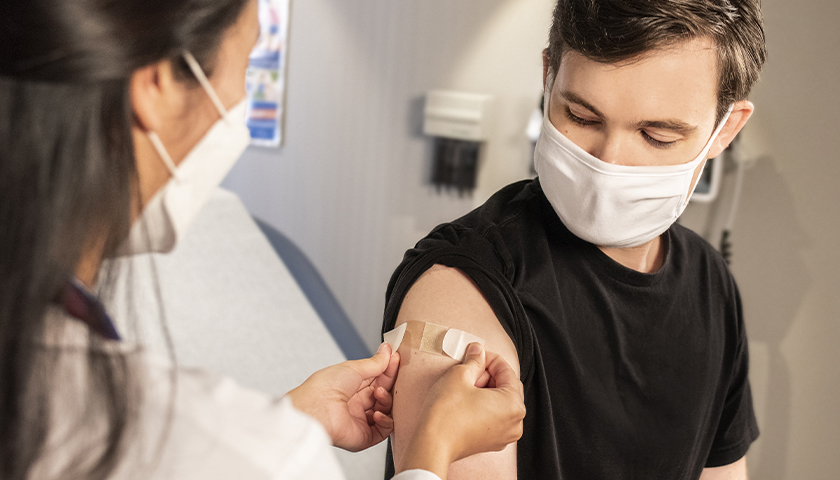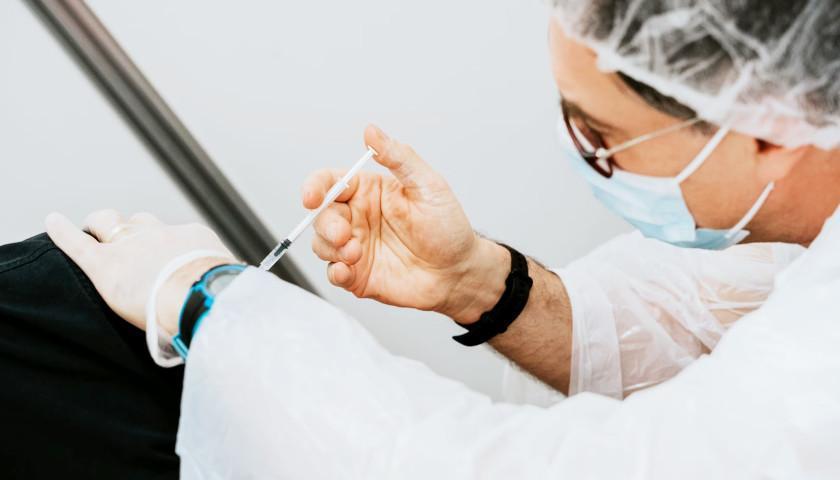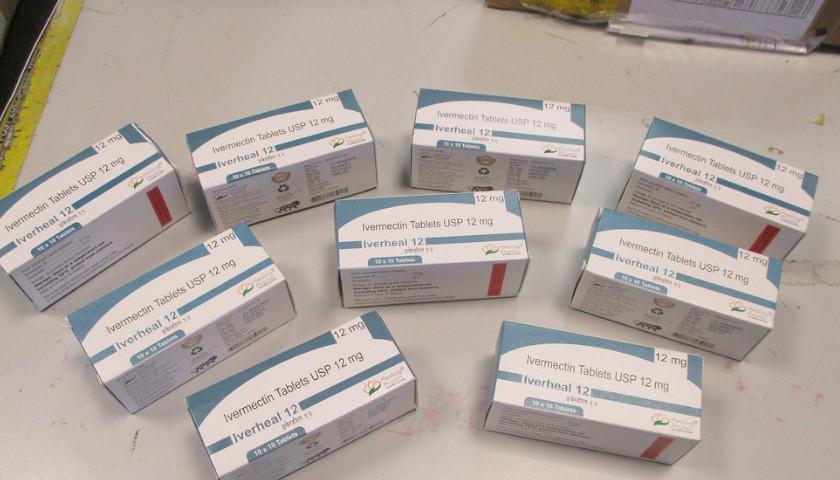Vanderbilt University Medical Center is studying the effects of three “repurposed” drugs in treating mild and moderate symptoms of COVID-19.
The study – a part of a large, national study begun earlier this year – is examining the effectiveness of Ivermectin, Fluvoxamine, or Fluticasone on the symptoms of the illness.
According to the National Institute of Health, which provided funding for the research, the study could assist sick individuals who do not yet require hospitalization.
“While we’re doing a good job with treating hospitalized patients with severe disease, we don’t currently have an approved medication that can be self-administered to ease symptoms of people suffering from mild disease at home, and reduce the chance of their needing hospitalization,” NIH Director Francis S. Collins, M.D., Ph.D. said in a statement announcing the study in April. “ACTIV-6 will evaluate whether certain drugs showing promise in small trials can pass the rigor of a larger trial.”
Although more commonly known for its use as an anti-parasitic, a paper published by the NIH in January stated Ivermectin’s antiviral properties could be useful for combatting COVID-19.
However, the paper emphasized in its abstract statement:
Ivermectin is an FDA-approved broad-spectrum antiparasitic agent with demonstrated antiviral activity against a number of DNA and RNA viruses, including severe acute respiratory syndrome coronavirus 2 (SARS-CoV-2). Despite this promise, the antiviral activity of ivermectin has not been consistently proven in vivo. While ivermectin’s activity against SARS-CoV-2 is currently under investigation in patients, insufficient emphasis has been placed on formulation challenges. Here, we discuss challenges surrounding the use of ivermectin in the context of coronavirus disease-19 (COVID-19) and how novel formulations employing micro- and nanotechnologies may address these concerns.
(emphasis added)
The national study seeks 15,000 participants and can be completed from a participant’s home.
In order to qualify for the study that will run until December 2022, interested parties must meet certain qualifications:
- Are 30 years old or older.
- Tested positive for COVID-19 within the past 10 days.
- Have at least 2 COVID-19 symptoms for 7 days or less. Symptoms include fatigue, difficulty breathing, fever, cough, nausea, vomiting, diarrhea, body aches, chills, headache, sore throat, nasal symptoms, and/or new loss of sense of taste or smell.
After joining the study, a participant will be sent one of the three medications or a placebo to take during their quarantine period. As they take the medication, they will document any new or improved symptoms.
– – –
Cooper Moran is a reporter for The Star News Network. Follow Cooper on Twitter. Email tips to [email protected].






The virus only replicates for 8 days. Guess the outcome of the study when they don’t want to begin treatment until the 7th or 8th day. IVM will fail!!
What joke. This will be yet another rigged study. The huge number of patients that were cured within hours of taking Ivermectin is all the proof we need. I am one of them. Just in case you were wondering the NIH gave Vanderbilt Medical Center $343,531,966 in 2021 and $377,931,988 in 2020. NIH also gave Vanderbilt U $117,682,231 in 2021 and $117,374,875 in 2020. So how do think this study will work out for the people of this country and the world. It will be rigged in order to keep the FAUCI NIH money flowing. Anyone that goes against this monster gets cut off.
Karen – the rest of the world, not just the rest of the country.
It kind of looks like they’ll be looking more at the delivery method than the medicine itself. Right now liposomal encapsulation is a big thing, and so is nasal application or inhaled or nebulized delivery. While there may be some benefit to these, the oral route of taking the pills or swallowing the liquid has worked just fine so far.
And while this virus has shown to have immediate impact in the lungs, it is primarily a vascular disease, so limiting the delivery vector to the airways may not show as complete an overall effect. So maybe take a pill, take a puff or two, and swab some in your sinuses? Let’s see what Vanderbilt comes up with.
My real concern is that this will not be another of those “designed to fail” trials where the patients are given either barely any of the medicine or far too much of it, and very late in the disease progression. We saw more than enough of that nonsense with the HCQ “trials”. The rest of the world has already figured out the proper dosage range and frequency, along with the necessary adjunct medications (doxycylcine, zinc, etc). Leaving out the adjuncts was another purposeful negative act of those fake HCQ trials.
So my hope is that Vanderbilt runs an honest and ethical trial, designed to cure the patients, not leave some to linger and die for statistical purposes. Also that a big trial done in the USA can not be ignored by the NIMBY attitudes of our government and the ivory tower paper pushers who demand placebo controlled double blind RCTs and turn a blind eye to real world evidence.
If you look at what I wrote I did say “the country and the world.” And your concern is what I tried to communicate. Vanderbilt Medical Center is controlled by the NIH and their research will show exactly what Fauci wants it to show if they hope to continue to get big bucks from NIH. I provided the figures for 2020 and 2021 that Vanderbilt received from NIH. Vanderbilt is NOT an ethical institution. It does the bidding of those that send them the most money. All health agencies today are not about health and we would be better served by avoiding them at all costs.
too little too late. how many thousands have died due to the shameful demonization of iver by the lapdog media?
Gee, way to go Vanderbilt! You finally caught up to what the rest of the country has known for almost 2 years now! I guess better late than never! Maybe the hospitals and doctors will quit killing people and start using Ivermectin if “Vaundabilt” says it works!